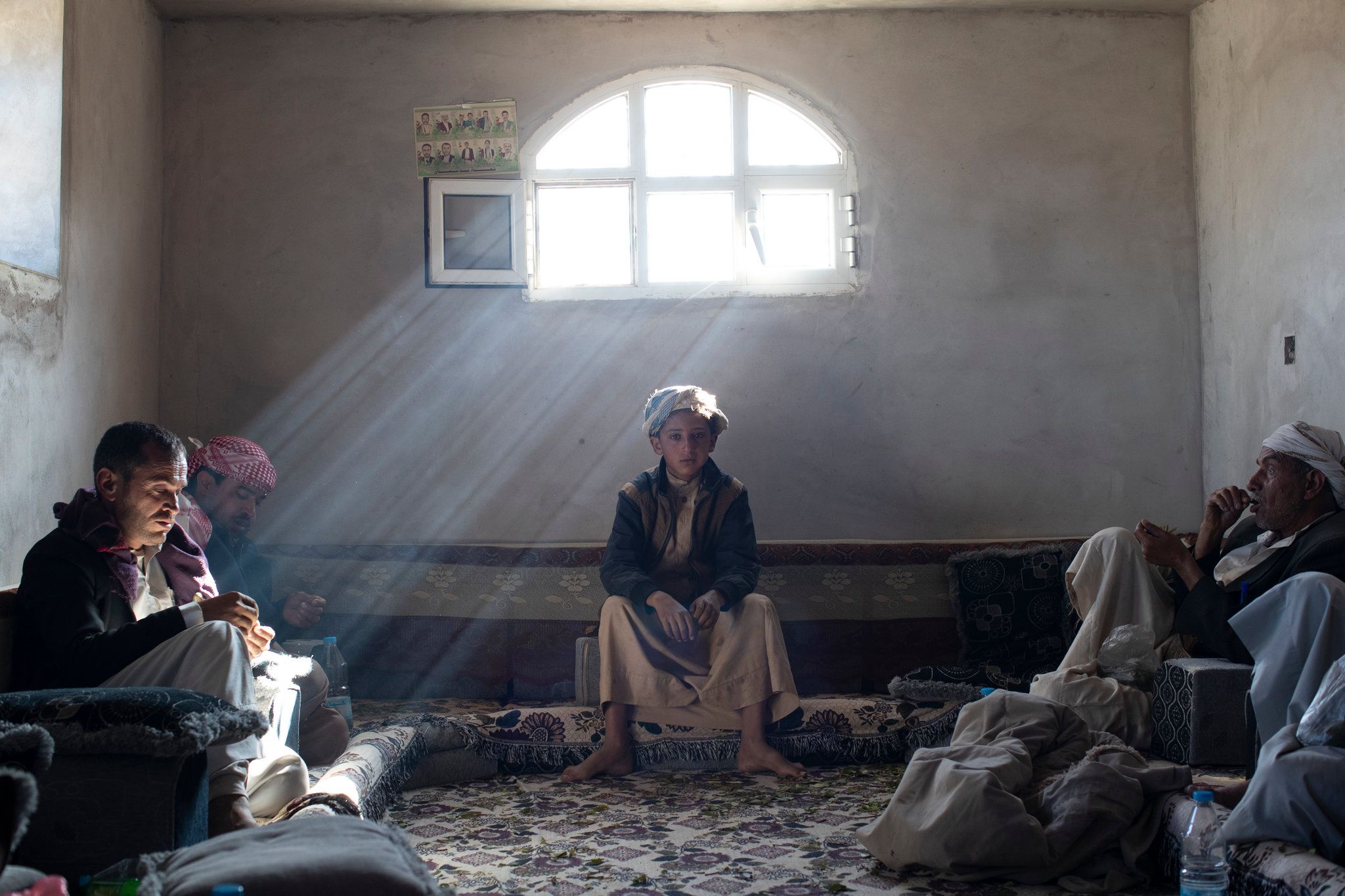It took a year of planning and three days of traveling from Washington, D.C., to get to Yemen. After visiting the South, I had another trip planned up North by car. But just before I was due to set out, I got a call from a fixer saying that for some reason, my access to Arhab, a district in the north I planned to write about, had been revoked. I had to decide whether or not to make the harrowing road trip across the country without knowing if I’d be able to complete my assignment.
I decided I had come too far to turn back. Perhaps this development was just some petty territorialism. Even war zones have bureaucracies; there’s a Jane from Accounting in every rebel movement. I figured I’d set off on the journey and maybe things would work themselves out while I was en route.
They didn’t. When I arrived in the North, a representative from the Houthi ministry of information said they couldn’t guarantee my safety in Arhab, so I couldn’t go. He seemed sincere, but it was possible that he was both sincere about my safety and sincerely wanting to control my coverage. He also said that the villagers no longer wanted to talk to me. I found that devastating, largely because I couldn’t blame them. It was the one thing I wasn’t prepared to push back on no matter how far I’d come. But I had checked several times before leaving the United States, and I couldn’t understand why they had changed their minds. The ministry representative, for his part, admitted that he was embarrassed about this development because he did not want the Houthis to appear obstructionist.
Soon after that meeting, a friend in Sana offered a different theory: Arhab was not uniformly loyal to the Houthis. They couldn’t be sure what people there would say, and perhaps assumed that if I actually made it to northern Yemen, they could simply redirect me to a story in more reliably pro-Houthi area. My editors in New York and I began trying and mostly failing to talk by phone and come up with a new reporting plan. We didn’t have much time. My money, my visas and my access to the North would last about a week. After two days, I had made no progress, and I decided to make one last attempt to sway the Houthis on letting me go to Arhab.
I went to visit the representative at the ministry, a mostly empty building with broken windows and holes in exterior walls from constant fighting. I asked what he thought about me asking researchers at a local human rights organization to call some of their contacts in Arhab. It was a way of cracking the door open without challenging the Houthis. An hour and half later, my translator and I were in an office across the city at the organization’s headquarters, a modest building with a chicken coop and a faint stink out front. We told them about the sudden reluctance in Arhab. They barely acknowledged the problem. They were eager to help. That evening, I had only just arrived at my hotel when a phone I assumed didn’t work rang in my room. It was one of the researchers. He was actually in the lobby — he had followed me back. He had already spoken to two people in Arhab who wanted to cooperate. Before we finished talking, a fixer called to say that the ministry already knew. It had heard that the researchers were in touch with people in Arhab and that the people in Arhab were willing to talk, and now the Houthis promised not to get in my way. The ministry would call ahead to the checkpoints and try to ensure my safe passage.
When I got to Arhab the next day, I was led into a classroom. So many people filed in to share their stories that someone closed the door to keep people out. The room started to grow dark, because outside, people blocked from entering were beginning to press against the windows.
